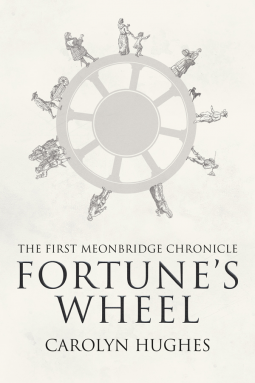During the Medieval period the plague went by several names, the most common being "the Pestilence" and "The Great Mortality". Theories about the cause of the disease were numerous, ranging from a punishment from God to planetary alignment to evil stares. Not surprisingly, many people believed that the horrors of the Black Death signalled the Apocalypse, or end of time.
The speed with which the disease could kill was terrifying to inhabitants of the medieval world. The Italian author Boccaccio claimed that the plague victims "ate lunch with their friends and dinner with their ancestors".
In England, the summer of 1348 was abnormally wet. Grain lay rotting in the fields due to the nearly constant rains. With the harvest so adversely affected, it seemed certain that there would be food shortages. However, there was worse to follow - It isn't clear exactly when or where the Black Death reached England. Some reports say the disease may have appeared as early as late June or as late as August. However, it was from this simple beginning, the disease spread throughout England with lightning speed and fatal consequences.
 The effect was at its worst in cities, where overcrowding and primitive sanitation aided in its rapid spread. By November the plague reached London, and up to 30,000 of the city's population of 70,000 inhabitants succumbed. Over the next 2 years, the disease killed between 30-40% of the entire population. Given that the pre-plague population of England was in the range of 5-6 million people, fatalities may have reached as high as 2 million dead.
The effect was at its worst in cities, where overcrowding and primitive sanitation aided in its rapid spread. By November the plague reached London, and up to 30,000 of the city's population of 70,000 inhabitants succumbed. Over the next 2 years, the disease killed between 30-40% of the entire population. Given that the pre-plague population of England was in the range of 5-6 million people, fatalities may have reached as high as 2 million dead.
One of the worst aspects of the disease to the medieval Christian mind is that people died without last rites and without having a chance to confess their sins. Pope Clement VI was forced to grant remission of sins to all who died of the plague because so many perished without the benefit of clergy. People were allowed to confess their sins to one another, or "even to a woman".
The death rate was exceptionally high in isolated populations like prisons and monasteries. It has been estimated that up to two-thirds of the clergy of England died within a single year. Peasants fled their fields. Livestock were left to fend for themselves, and crops left to rot. The monk Henry of Knighton declared, "Many villages and hamlets have now become quite desolate. No one is left in the houses, for the people are dead that once inhabited them."
It is impossible to overstate the horrific effects of the Black Death on England. With the population so low, there were not enough workers to work the land. As a result, wages and prices rose. The Ordinances of Labourers (1349) tried to legislate a return to pre-plague wage levels, but the overwhelming shortage of labourers meant that wages continued to rise. Landowners offered extras such as food, drink, and extra benefits to lure labourers. The standard of living for labourers rose accordingly.
The nature of the economy changed to meet the changing social conditions. Land that had once been farmed was now given over to pasture, which was much less labour-intensive. This helped boost the cloth and woollen industry. With the fall in population, most landowners were not getting the rental income they needed, and were forced to lease their land.
Peasants benefited through increased employment options and higher wages. Society became more mobile, as peasants moved to accept work where they could command a good wage. In some cases, market towns disappeared or suffered a decline despite the economic boom in rural areas.
The short-term economic prosperity did not last; the underlying feudal structure of society had not changed, and by the mid-15th century standards of living had fallen again. Yet for most levels of English society, the Black Death represented a massive upheaval, one which changed the face of English society in a profound way.
This then is the backdrop of Carolyn Hughes' "Fortune's Wheel", the first in a series set in a fictional town of Meonbridge in Hampshire in 1349. Widow Alice atte Wode, finds herself trapped in a plague-village; there is growing conflict between the lord of the manor and his tenants; murder has reared its ugly head; and there is still the un-answered question of Alice's missing daughter. Here, it is the women who tell this multi-layered story - Alice, Lady Margaret, and freewoman Eleanor - and it is a story of the people - those with the most to lose and now the most to gain.
The second in the series is "A Woman's Lot" followed by "De Bohun's Legacy", with a fourth on the way; and I look forward to reading them all. "Fortune's Wheel" is a fine debut - something a bit different for those wishing to expand their historical fiction.

No comments:
Post a Comment